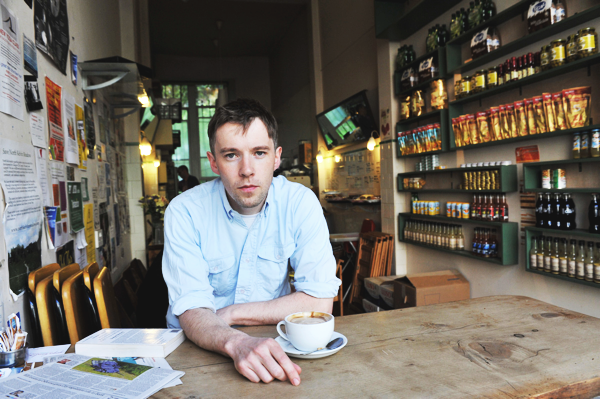
Courtesy Tate
Duncan Campbell has been awarded the 2014 Turner Prize during a ceremony at London’s Tate Britain, presided over by Hollywood darling Chiwetel Ejiofor.
Almost unanimously tipped as this year’s winner, video artist Campbell was nominated for It for Others, a filmic response to the Chris Marker and Alain Resnais cult film Les Statues meurent aussi (Statues also die) (1952–53), which was shown in the Scottish pavilion at the last Venice Biennale (and in the Starr Auditorium at Tate this past April).
Quoting Irish poet W. B. Yeats—whose first question when he was awarded the Nobel Prize for Literature in 1923 was “How much?”—Campbell said that the £25,000 cash award will “make a huge difference.”
“Being nominated for this prize has given me great heart,” the artist added, thanking the jury.
Campbell triumphed over fellow nominees Ciara Phillips, James Richards, and Tris Vonna-Michell, who will go home with £5,000 each.
It for Others takes on subjects as seemingly disparate as Karl Marx’s Das Capital, advertising, and African artifacts acquired under Imperial rule.
“It’s a piece that asks us to think about art in a moral context,” commented art historian Dr. Gus Casely-Hayford on Channel 4, minutes before the announcement.
Campbell was born in Dublin in 1972, but has been a longtime Glasgow resident, and one the most visible proponents of the much-feted Scottish art scene.
He follows in the footsteps of prestigious winners, among them Rachel Whiteread (1993), Damien Hirst (1995), and Steve McQueen (1999), who directed Ejiofor in 12 Years a Slave.
Talking to the Guardian, Campbell said he hadn’t ruled out the possibility of tackling feature film.
“If something came up and I thought it could be interesting, it would certainly be worth exploring,” he said, adding: “I make a film as long as it needs to be and the traditional, industrial model of how to produce a film would have to open up to some extent for it to work for me.”
The jury this year included Artists Space’s Stefan Kalmár, Spike Island’s Helen Legg, Glasgow International’s Sarah McCrory, and Wiels’s Dirk Snauwaert. It was chaired by Tate Britain’s director Penelope Curtis.